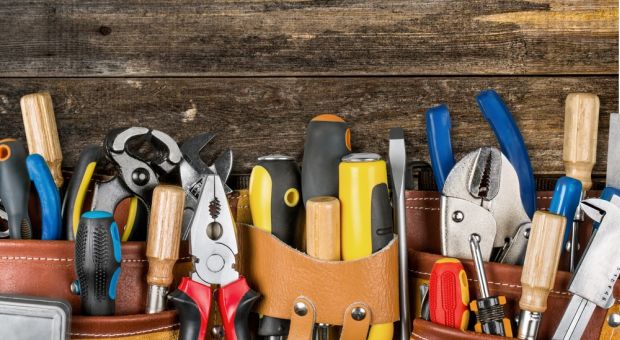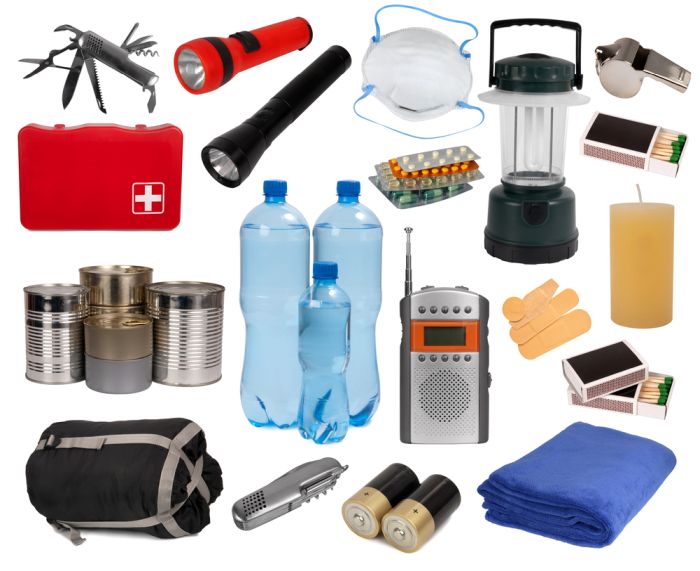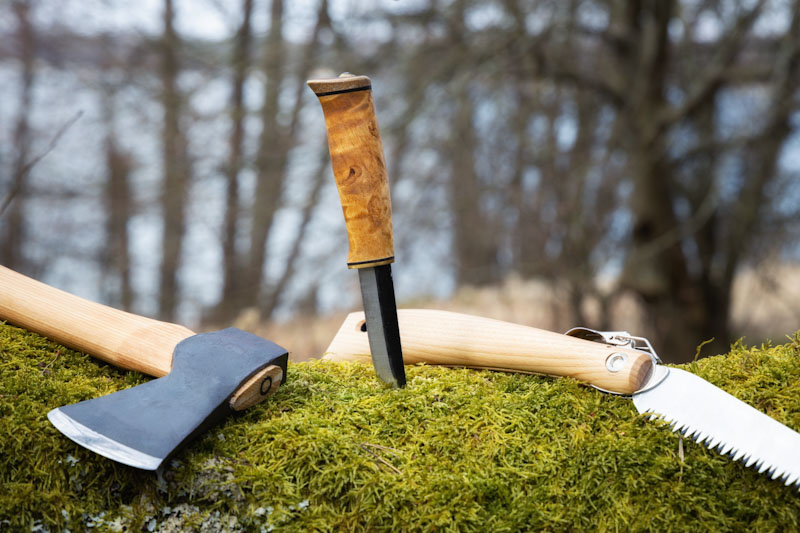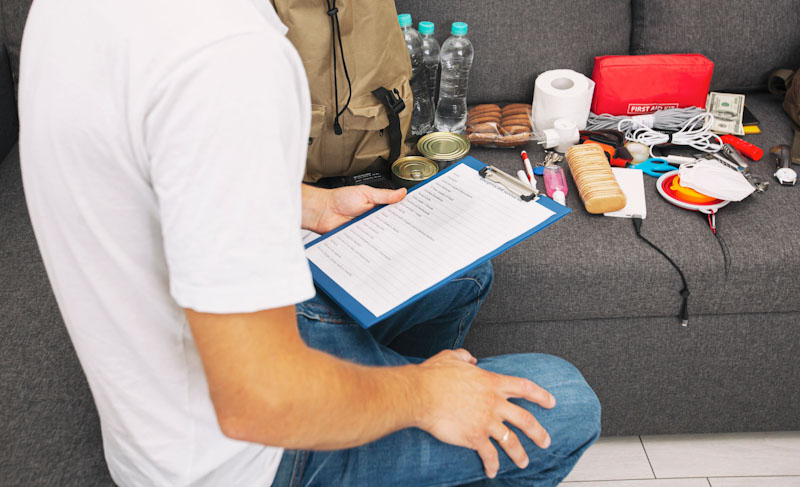These days, sudden health problems, financial setbacks, and other challenges can pose as much threat and risk to life and wellness as volcanoes, hurricanes, and other catastrophic disasters.
Regardless of the disaster type, however, you will always find yourself looking for simple solutions that cost as little as possible. It is during these times that you may be most inclined to look around the house for things you already have that can be used to remedy the situation.
Here are some things you should keep in mind when repurposing household items to create powerful remedies, a small toolkit that should be in every room, and an additional 10 items you should always keep on-hand and nearby.
Have a Clear Understanding of What Needs to be Done
Before you even begin using the household remedies listed in this article, or any others you happen to know about, it is very important to have a clear idea of your goals.
For example, if your washing machine breaks down and you cannot afford to go to a laundromat, it doesn’t make much sense to grab a bag of Epsom salts and expect it to do some kind of magic to solve your problem. Rather, you will need to think about how you are going to wash the clothes as efficiently and effectively as possible.
Find out our Firefather’s Time-Tested Natural Cures and Household Remedies
In this case, if you have one or two 5 gallon buckets laying around a heavy dowel, and some slats, you can make a bucket washer. Alternatively, if the garments are made of light weight fabric, you can get away with using a clean bathroom plunger. One bucket will be enough to make a washer that will accommodate an agitator, but it will not work well insofar as wringing the clothes out. To make a washer that will wring the clothes out, you will need a second bucket.
Once the garments are washed, as long as you have some paracord and two points to tie it to, you can make a simple clothesline. Even if you don’t have clothes pins, you can still drape the garments over the paracord line and let them dry out that way.
Know How Long the Remedy Needs to Last or Work
As you well know, a crisis situation may last for just a few hours to days or stretch along for months and years. Before you begin cobbling together a solution to an obstacle or problem, it is very important to have a clear idea of the time frames you are dealing with. This can help you choose a better design or select different materials that will work the allotted time frame. As strange as it may seem, even something as simple as plastic bottles and metal soda cans can have a finite limit in terms of availability.
If you are considering using items that you would need for a longer term crisis in a short term situation, it may wind up causing you to have less items on hand later on.
Consider a situation where your heating system broke down and it will take three days for the repair company to get the parts needed to fix it. During those three days, you are expecting fairly cold weather, and know that electric heaters and similar devices will not be enough to keep your home warm.
Now let’s also say you have propane, electric blankets, and a fireplace that you can use to burn wood or other items. Let’s also say that you have resources on-hand to make a candle heater (clay pots, nuts, bolts, washers, and candles), and an alcohol stove (soda cans and rubbing alcohol).
Even though there is a finite end to this crisis situation, that doesn’t mean you should waste resources that might be better to save for some other time. In this case, your worst option would be to use the propane immediately because it is expensive. An electric blanket will be useful for keeping you warm while you sleep as well as other times when you aren’t moving around much. Since they last a long time, they are a much better option that running a propane stove.
When it comes to choosing between the fireplace, candle heater, and alcohol stove, a lot depends on where the fireplace is in relation to the room that you decide to “camp” in until the heat comes back on. Typically, you will want to choose a smaller room so that you can conserve as much fuel as possible. Since the candle heater produces more heat using cheaper fuel than the rubbing alcohol stove, it is the better option.
In addition, if you run out of candles, you can always use crayons, chap stick, or even a can of vegetable oil with rolled up newspaper for the wick as a candle.
Now let’s change the scenario a bit and say that your local area got struck by a blizzard and it will be about two weeks before you can get a fuel delivery. Let’s also say you are almost out of fuel and know that you cannot go for two days, let alone two weeks. Under these circumstances, you can still try using the candle heaters and other resources before using the propane stove.
Even though it is likely you will have to use this resource, it is still best to use other and cheaper sources of heat first.
Let’s shift now to look at the aftermath of this crisis and what it teaches you. Chances are, once you have to survive a blizzard or a few days during a cold snap, you will never want to take the chance of relying on short term heating sources or those that cannot work adequately to heat your home comfortably. Rather than wait for a crisis to spur a re-evaluation of powerful household remedies, you can start from now to look for more long lasting options.
In this case, compost piles produce a steady, stable heat regardless of whether it is summer or winter. All you need is a steady supply of plant based kitchen scrap, a compost bin, and some PVC pipe that can be used to pump warm water through the house. Some other things you might want to try include:
- A tin can solar heater (you would be amazed at how much heat some tin cans painted black and insulated with a glass covering will produce). To maximize the efficiency of this system, use water pipes inside the cans and have a storage tank in an area where the dispersion of heat from it will be of use to you.
- Learn all you can about passive heating and cooling methods. If you have to insulate you windows and don’t have heavy drapes, try using contractor bags taped into place with duct tape. The black plastic will absorb any heat generated by the sun and help keep it in the room.
- Consider building a geothermal heat pump system. If you cannot afford this type of system, cannot get the permits to do it yourself, or do not have enough room to have one on your property, find out how much it would cost to install one for the whole community. Next, take the matter up with your local political leaders. If they are resistant to creating a community based heat pump system that residents can use for free, this is the time to investigate their salaries, benefits, and expense accounts. Never forget that, as a citizen of that community, you have a right to that information. Once you find out how much tax money they are using for personal gain, be sure to inform the media and everyone that you can about the situation; and how the vast majority of that money would be more than enough to pay for a heat pump system that everyone would benefit from.
Have the Tools On-hand to Make Modifications
Even if you have a wide range of materials on-hand and know how to use them, it won’t help very much if you don’t have the right tools. For example, if you have everything you need to make a rubbing alcohol burner, it won’t help much if you don’t have a pair of scissors and a knife capable of cutting into a metal drinking can. By the same token, if you are going to use the bottom of a drinking can to make a fire starting lens, it won’t work unless you have a fine grade steel wool available to increase the reflectivity in the bottom of the can.
Fortunately, when it comes to common household items that can be used to make powerful solutions to problems, it does not usually take much in the way of tools. You should still be careful and choose good quality tools to have on-hand. All tools can and should be tested for durability and usefulness with common materials before you add them to your stockpile or household bucket EDC system.
In some cases, you might still get viable tools at a dollar or discount store. Other times, you may need to go to flea markets to locate vintage hand tools, or buy new ones from a reputable manufacturer.
Over the years, I have probably spent more time and money on safety gear and protective garments than the good quality tools I purchased years ago. There is nothing more painful, dangerous, and downright embarrassing than working with simple hand tools or even power tools and winding up with a preventable injury.
Always include goggles, various kinds of light and heavy weight work gloves, ear protection, coveralls, foot gear, and mouth guards in your household EDC buckets or other stockpiles.
In a time of need, when you may not be able to get to a doctor or emergency room, avoiding injury while you are working on various tasks is extremely important. It remains one of the best ways to ensure you can still carry out a diverse number of tasks and also reduce the risk of life threatening infections.
There are three kinds of tools you will need to have on-hand no matter what kind of material you will be working with:
- Tools to reshape the material – this list includes scissors, knives, templates, measuring tapes, rulers, saws, pliers (can also be used for joining materials together), and drills.
- Tools to remove material artifacts – any time you work with wood, metal, glass, or even fabric, there are bound to be rough edges or areas that need to be smoothed out or brought into a better fitting alignment. Sandpaper, files, and polishing agents are always good to have on-hand. While woodworking is well within the scope of many preppers, you may also want to consider diversifying into working with stone. In most cases, a good quality rotary tool, attachments, and polishing agents will enable you to create just about any shape.
- Tools to join materials together – hammers, screwdrivers, wrenches, needles and thread, soldering irons, and glue guns are all items that will be absolutely necessary depending on the kind of materials you are working with. If you have to use some kind of fastener or multiple parts, rest assured you are also going to need a tool to manipulate the fastener.
Be Able to Assess How to Make a Material Safe for Use in Medical Situations
No matter whether you are trying to get through a hurricane, a financial setback, or some other crisis, there is no such thing as a medical emergency that can be put on hold until other matters are resolved. This is just one of many reasons why you may be thinking about how many medical problems you can alleviate using household goods.
Chances are, you are also wondering about things that go well beyond splints and that can be used to manage a range of ailments including infections or sudden symptoms that may be tied to a more chronic illness.
- Choosing herbs to grow or have onhand – Aside from family history and lifestyle choices, there are other diseases that are likely to crop up as you age. While researchers can give you some ideas about when things like high blood pressure or arthritis are likely to start, there are no guarantees. When combined with the way the US health system is failing miserably in terms of cost and capacity to care for so many people with chronic illness, it is easy enough to see that a major crisis will strain the system even more. These are just a few reasons why it is very important to know how to manage both chronic and emergency medical situations using herbal remedies or other cures that you can manage on your own. It can take a lot of work and research to find creditable studies on herbal remedies, as well as how to grow and prepare them for maximum benefit. At the very least, you should start by making a list of conditions you already have, and ones that you are at high risk for developing. From there, you can start researching the herbs and other items that may be of use to you in a time of need. You can expect to spend at least 2 to 4 years investigating all the possible remedies as well as acquiring them, learning how to use them, and recognizing when to use them.
- Ability to sterilize or cleanse the object – depending on the situation, you may need to use towels, knives, or other materials on broken skin, deep wounds, or in contact with mucus membranes. Did you know that even a small scratch in the skin can introduce tetanus and other deadly bacteria into a wound? It does not matter if the pathogen was introduced accidentally, or through ignorance because you did not use sterilized tools or materials to manage the injury. By the same token, there are chemicals, and also viruses and other disease bearing agents that can get past the mucus membranes and cause illness. As a result, it is very important to know how to remove chemical residues as well as sterilize objects and materials that aren’t already packaged and guaranteed to be free of pathogens.
- How it will interact with other chemicals and materials – items like lye, baking soda, lemon juice, and vinegar are all very useful and powerful remedies, or precursors to more effective and safer options. As you mix and combine different chemicals, you must always be aware of how they will affect the vessel they are being mixed or stored in. This includes understanding how changing the strength percentage of the active ingredient and the amount of heat generated will affect the mixing vessel, the one used for storage, and any tools required for application and preparation. For example, even though lye soap can be stored in paper wrappers or plastic, lye itself can only be stored and mixed in certain kinds of vessels. In this case, you should never let lye anywhere near aluminum containers or mixing utensils. If you are using plastic, it is very important to make sure they are safe to use with Lye.
- How to prepare the remedy – consider a situation where you have aloe growing all over the house and know that you can use it for digestive issues, managing open wounds, and soothing the skin. You may even have suitable mixing bowls and the proper ingredients to make aloe soap, shampoo, or other personal care products. Unfortunately, if you don’t know how to choose good aloe leaf or how to get as much gel as possible, you will find it much harder to efficiently produce a reliable remedy. As you choose each material or item, it is very important to experiment until you produce something useful. Remember, there is a lot of wrong to the point of being outright dangerous information in books, magazines, videos, websites and other sources of information. Unless you practice and learn from experience, you will never know for sure if the materials and remedies fashioned from them will actually work as expected.
- How to know if something isn’t working as expected and what to do about it – over the years, I have looked at videos for building everything from foxhole radios to solar cookers and beyond. Each time, I usually find numerous designs that eventually come down to the same basic components. I have also found many times that there is a “fatal” flaw in just about all the designs. Sadly, when it comes to solving survival or complex problems using household items, you will find that many things don’t work as expected. If you do not practice using these items in real time or drill type situations, then you won’t know what to expect, let alone how to work around it. For example, if you have never made a cabbage leaf wrap for a sore back or inflamed joint, it is best to find out now, rather than later that you didn’t crush the leaf properly or didn’t wrap the surrounding plastic correctly. Even if you make a mistake the first time and go back to do more research, you can look at it as a learning experience and move forward. Remember, finding and using powerful household remedies is as much about discarding things and processes that don’t work as much as it is about building the skills and knowledge required to make and apply the solution to a well defined problem.
Look Back in Time to See How the Same Problem Was Solved
Some of the most valuable and useful household items have been around for decades and centuries. Then, as now, people had to deal with health problems, sudden weather related disasters, financial collapses, warfare, deaths in families, job loss, and crop failures. No matter whether you study the pioneers that founded our nation, or go even further back in time to Ancient Egypt, Greece, India, and China; you are sure to find all kinds of fascinating information on how to manage a host of catastrophic problems with common materials. Here are some sources that are being proven very useful today that can help you make the most of household supplies:
- Traditional Chinese Medicine (TCM) and Ayurvedic medicine. These resources will teach you about a number of herbs that are available today including turmeric, ginger, and ginseng. If you aren’t sure about how useful these herbs really are, simply go to nih.gov and look at all of the research that either supports or invalidates the ancient texts. You will be truly amazed at how many things were known centuries ago that are proving to be correct now.
- Classical Greek texts – these are some of the best for learning more about ancient machines that generate and use steam to accomplish various goals. They are also some of the best for reliable methods for building the simple machines of physics.
- Food preservation and storage – few places rival Egypt and other Middle Eastern countries for hot climates that spoil foods easily. From zeer pots to the use of desiccants and fermentation, you are sure to find many recipes and techniques that can be used in your home.
- Your own family history – regardless of your ancestry, you can rest assured that your parents, grandparents, and other ancestors had to get through some very trying times. As problem solvers, they probably had to innovate or explore numerous avenues before reaching their goals. Great grandparents that survived the Great Depression may have useful information about how to avoid the hazards of a “bank holiday” as well as the dangers of relying on “plastic” currency. In a similar fashion, your family members may still have recipes for medicinal wines, compresses, poultices, and other remedies made from foods, wild plants, or common household items.
Items to Keep in Every Room and in Your Vehicle
Even though this list may seem like a lot of items, you would be amazed at how much you can fit into a 5 pound bucket. It is best to have on in each room so that you do not need to scramble around looking for these items in a time of need. For example, if there is an earthquake and you need to get out of your house, it is easy enough to grab a bucket from the room you are in and run with it.
Make no mistake, by the way, staying inside any kind of building during an earthquake is absolutely deadly, as is crawling under furniture that could collapse on top of you. You must get out of the building as quickly as possible with the kind of tools, supplies, and materials that can, at least, get you through the first 24 – 48 hours, or until rescue crews can get to you. In a similar fashion, if you delay evacuating from some other kind of hazardous situation, you may not have 5 or 10 minutes to get to your bug out bag, let alone assemble the items listed here.
- Important Paperwork (should be on you at all times or in the same room with you). Insofar as money, you can put some in each bucket. I don’t necessarily recommend pre-paid debit cards because large scale computer failures or other collapses to the information/IT infrastructure can leave you without access to your money. Cash is still the most reliable means of paying for gas and other items you may need as you move from one location to another, or as you try to survive in your home.
- 5 Gallon Bucket With Airtight Lid and Secondary Regular Lid
- Safety gear for each type of tool or expected task
- Hand warmer packets
- 2 bottles of drinking water
- First aid kit that includes tweezers, magnifying lens, cotton swabs, wraps, and surgical tape
- Fire starting kit
- Enough nutrition bars or MREs to last 2 days
- A life straw or water purification tablets
- Metal camping kit that includes a cooking pot and utensils
- Enough medication to last 1 week
- 1” thick dowel and wood slats
- Ratcheting screwdriver
- Hammer with pry bar
- Pliers
- Wrenches and sockets
- Various sized corner braces
- Various sized screws, nails, nuts, bolts, and metal washers
- Complete change of clothes suitable for the time of year
- 3 clay pots of varying sizes
- Clear Plastic Bags
- Speaker Wire
- Double Edge Razor
- Tin Foil
- Bandaids
- Alcohol Swabs
- pH Test Kit
- 3 in 1 Flashlight
- Battery Radio
- Paracord
- Folding Knife
- Window Breaker/Seatbelt Cutter
- Sari Cloth – this can be used for water filtration. Choose cotton cloth with the highest thread count that you can find. Once you have the thread count information, do some additional research to find out how many times you have to fold the cloth over in order to filter out pathogens and particulate matter.
- Emergency Blanket
- Construction Bags
- Wax Paper
- Quartz Crystal
- Black Tourmaline
- Mirror
- Tape Measure
- Compass
- Compact Towels
- Lye Soap
- Bandanna
- Salt
- Graphite
- Magnets
- Needles
- Thread
- Antibiotic Cream
- Custom Essential Oil Kit
- Petroleum jelly
- Rubber bands
- Birthday candles
- Vitamins
- Micro chips (with copies of survival or off-grid oriented information) and suitable access device in EMP proof bag
Basic Items Everyone Should Have
These items are a special subset because they should be in your home as well as stashed in each of your room based survival buckets. Do not forget, with the exception of lye, you can buy large sized packages and then break them down into smaller or single use packets that can fit easily enough into your bucket system. Each of the items on this list can solve anywhere from a dozen to hundreds of diverse problems when combined with a few simple tools and the knowledge of how to use them.
- Epsom Salts
- Duct Tape
- Black Pepper
- Peppermint
- Baking Soda
- Vinegar
- Rubbing Alcohol
- Contractor Bags
- Speaker Wire
- Towels
- Lye
- Lemon Juice
- Vinegar
- Plaster of Paris
Sometimes it can seem difficult to know which items from around the house will yield the most powerful remedies.
It is best to start off with a handful of tools and then apply them to common materials that are easy to obtain and store. Looking to the history of your family and the history of other cultures will also offer valuable clues and insights into how to use these materials for the best chance of success.










Brett | August 10, 2018
|
Great article! Thanks!
Alex | August 13, 2018
|
Great!
Donna Hannon | August 14, 2018
|
Carmela, great advice given freely to help others with the same thought process and the will to do all in our power to survive. Thank you so much for your generosity, and I am very happy that you have not blown up your house lol. God Bless you, your husband and six cats or more.